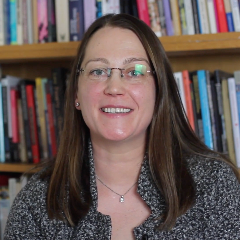You are not currently logged in. Please create an account or log in to view the full course.
Gender and Domestic Labour in Classical Sociology
- About
- Transcript
- Cite
Gender and the Domestic Division of Labour
In this course, Dr Vicki Harman (University of Surrey) explores gender and the domestic division of labour. In the first lecture, we think about classical sociology, particularly functionalism, in which domestic labour was both undervalued and thought to be the responsibility of women. In the second lecture, we look at a key text in making domestic labour an area of sociological interest – Ann Oakley’s The Sociology of Housework. In the third lecture, we ask whether women’s greater participation in paid work has created greater equality. Next, we look at the gendered division of emotional labour and the pressure on women to act as caregivers. In the fifth and final lecture, we survey of a range of aspects of gender inequality in domestic labour highlighted by feminist scholars.
Gender and Domestic Labour in Classical Sociology
In this lecture, we think about gender and domestic labour in classical sociological theory, particularly functionalism, focusing in particular on: (i) the relative neglect within early sociology of work within the household as an important aspect of society; (ii) Talcott Parsons’ theory of the nuclear family as a “functional fit” for modern industrial society; (iii) the assumption within this theory that women were naturally best placed to perform the “expressive” role within the family and men the “instrumental”; (iv) the emergence of feminist critiques of this approach to the domestic division of labour.
Cite this Lecture
APA style
Harman, V. (2022, February 10). Gender and the Domestic Division of Labour - Gender and Domestic Labour in Classical Sociology [Video]. MASSOLIT. https://massolit.io/courses/gender-and-the-domestic-division-of-labour/feminism-and-domestic-labour
MLA style
Harman, V. "Gender and the Domestic Division of Labour – Gender and Domestic Labour in Classical Sociology." MASSOLIT, uploaded by MASSOLIT, 10 Feb 2022, https://massolit.io/courses/gender-and-the-domestic-division-of-labour/feminism-and-domestic-labour





